Some states of the federation are enjoying various grants and soft loans worth about $4billion from the World Bank to enhance their abilities to meet the aspirations of their people, the Chairman of the Nigeria Governors Forum (NGF) and Governor of Ekiti State, Kayode Fayemi, has disclosed.
He stated this during a meeting of the state governors with the World Bank represented by the Country Director, Rachid Benmessaoud and his team in Abuja on Wednesday.
Fayemi said the funds provided to the states come with a long moratorium and low-interest rates to offset it.
“The bank is spending somewhere in the region of $4 billion in states and some of our states are benefiting from a range of grants. Even the loans that we benefit from on the basis of the bank’s investments in our states, these are with long term moratorium and with low interest over a long period of time to offset those loan portfolios,” he said.
He said it was important for the states to work with the World Bank “to look at ways of engaging the bank’s subsisting portfolio and review things that we are doing right, things we need to improve on and how we need to accelerate deployment of resources that is available within the portfolio for states.”
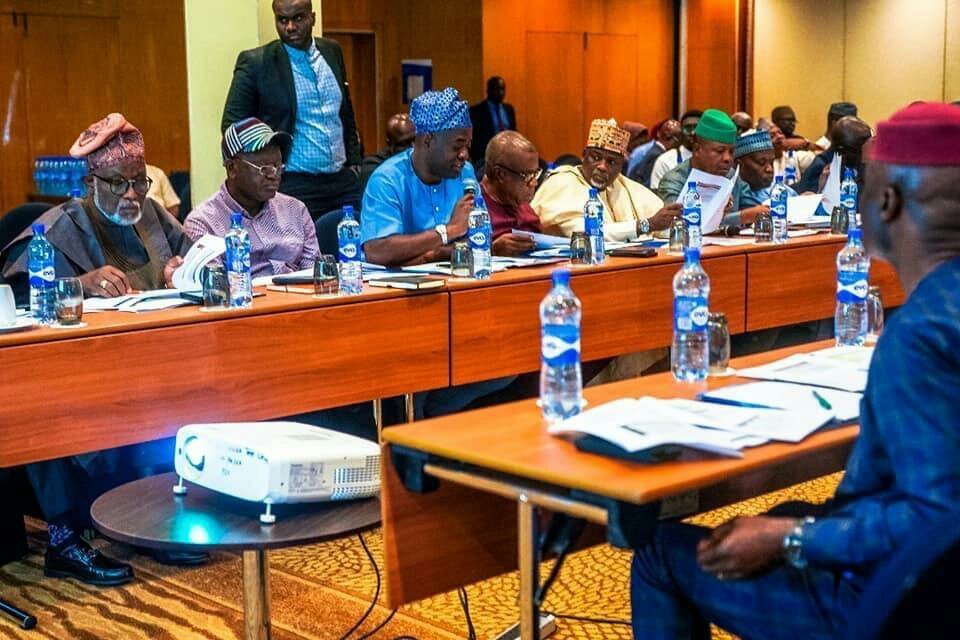

According to him, it was also important for the states to work with the bank in terms of lending operations, advisory activities, and concrete action in the states.
Fayemi added: “The NGF has proposed a range of suggestions which the bank has taken up and will be implemented in other to better the relationship we have built over the years.
“There is a question of course of also not having enough resources and the need to expand the lending portfolio from what it is now both to the federal government and the sub-national entity.
“It is absolutely important that that vehicle is not closed because if we can borrow from the World Bank at one per cent interest, it is always going to be better for us than for us to borrow at 25 per cent commercial lending rate. That is a no brainer, we will all agree with that.”
While praising the efforts of the World Bank in the states, the NGF boss, who observed that the country was just emerging from an election, stressed the need for continuity in government’s programme as he noted that governance was a continuum.
He further stated: “I don’t know of many developments partners that have programmes in 36 states. The World Bank does and all of our governors were present in this meeting and that makes the statement about the importance attached to this partnership with the World Bank and we had an extensive discussion on how to improve on the existing relationship and how to build on those projects that have transitioned from one governor to the other.
Because periods of transition can be a challenging period and it is absolutely important that we treat government as a continuum and address whatever gaps that there are without throwing the baby away with the bath water.
“These are what came out from the investment/lending portfolio, a programme for result portfolio which are two vehicles that the World Bank uses in their relationship and support in our states.”
In his remark, the World Bank country’s director, Benmessaoud said the bank has been particularly engaging with the NGF as the important platform for engaging with the sub-national governments beside our engagements at the state level.
He explained that the World Bank mission was to fight poverty and build prosperity, saying: “We know that the number of poor people has increased in Nigeria in terms of number though the trend is decreasing.
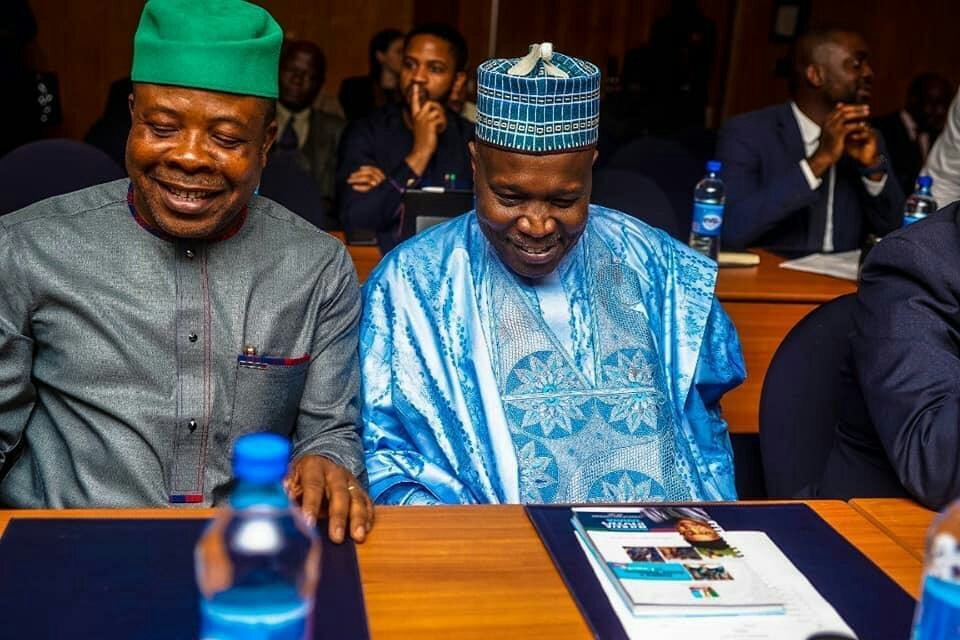
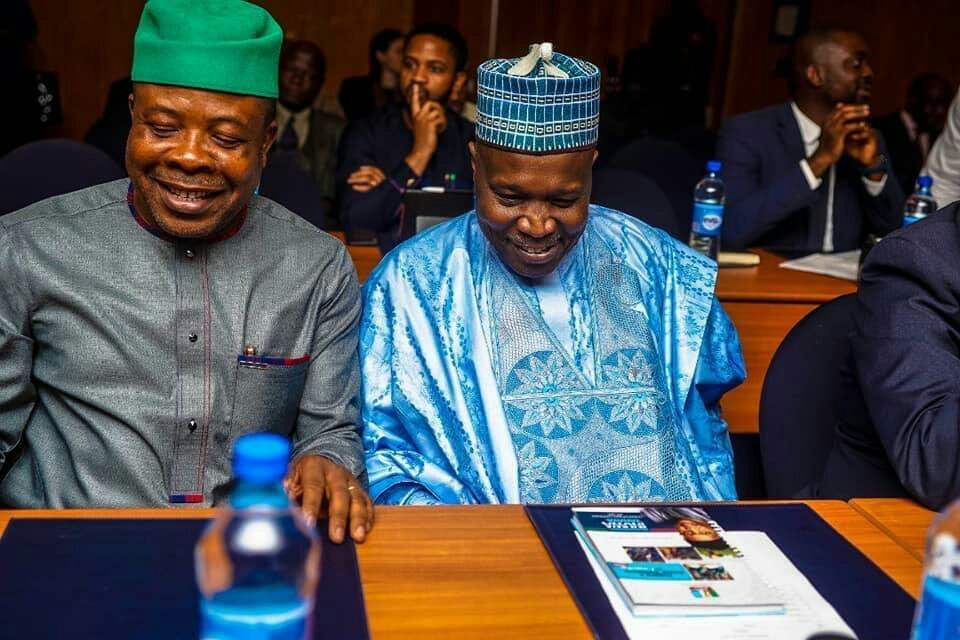
“So, fighting poverty in Nigeria and Africa is going to be absolutely critical for reducing poverty globally. So, therefore, our priorities which we have engaged with the governors will be around investing in human capital, investing in people to have access to basic education, health services, social protection.
“But we do recognise the development challenges also requires investing in infrastructure and filling the large infrastructure gaps.
“But with that, we want to make sure that those infrastructure gaps are filled by bringing more of the private sector so that will enable to create the physical space for governors to invest in human capital including financing from development partners like the world bank.
“But most importantly to increase the domestic revenue mobilisation for providing primary spending on the social sector.
“So, therefore the World Bank has a large part of its engagement at the state level.”
You may be interested

PSG To Reignite Interest In Osimhen
Webby - December 21, 2024Paris Saint-Germain have contacted Napoli to discuss signing Victor Osimhen in January, according to reports in France.It is reported that…

Arteta Provides Injury Updates On Five Arsenal Players Ahead Palace Clash
Webby - December 20, 2024Arsenal manager Mikel Arteta has revealed that Declan Rice and Riccardo Calafiori are both available to be in the Gunners…

Carabao Cup: Spurs Edge Man United In Seven-Goal Thriller To Reach Semi-finals
Webby - December 19, 2024Tottenham Hotspur edged Manchester United 4-3 in the quarter-finals of the Carabao Cup on Thursday.Spurs raced to a 3-0 lead…

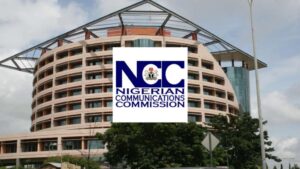

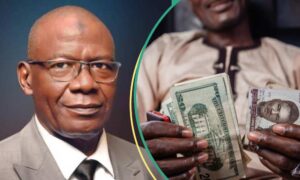

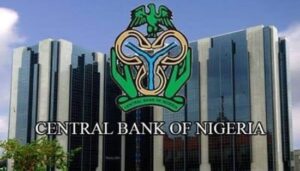














![American Pastor, David Wilson Seen Eating The Box Of Woman Who Isn’t His Wife [Video]](https://onlinenigeria.com/wp-content/uploads/2019/10/american-pastor-david-wilson-seen-eating-the-box-of-woman-who-isnt-his-wife-video-150x150.jpg)









